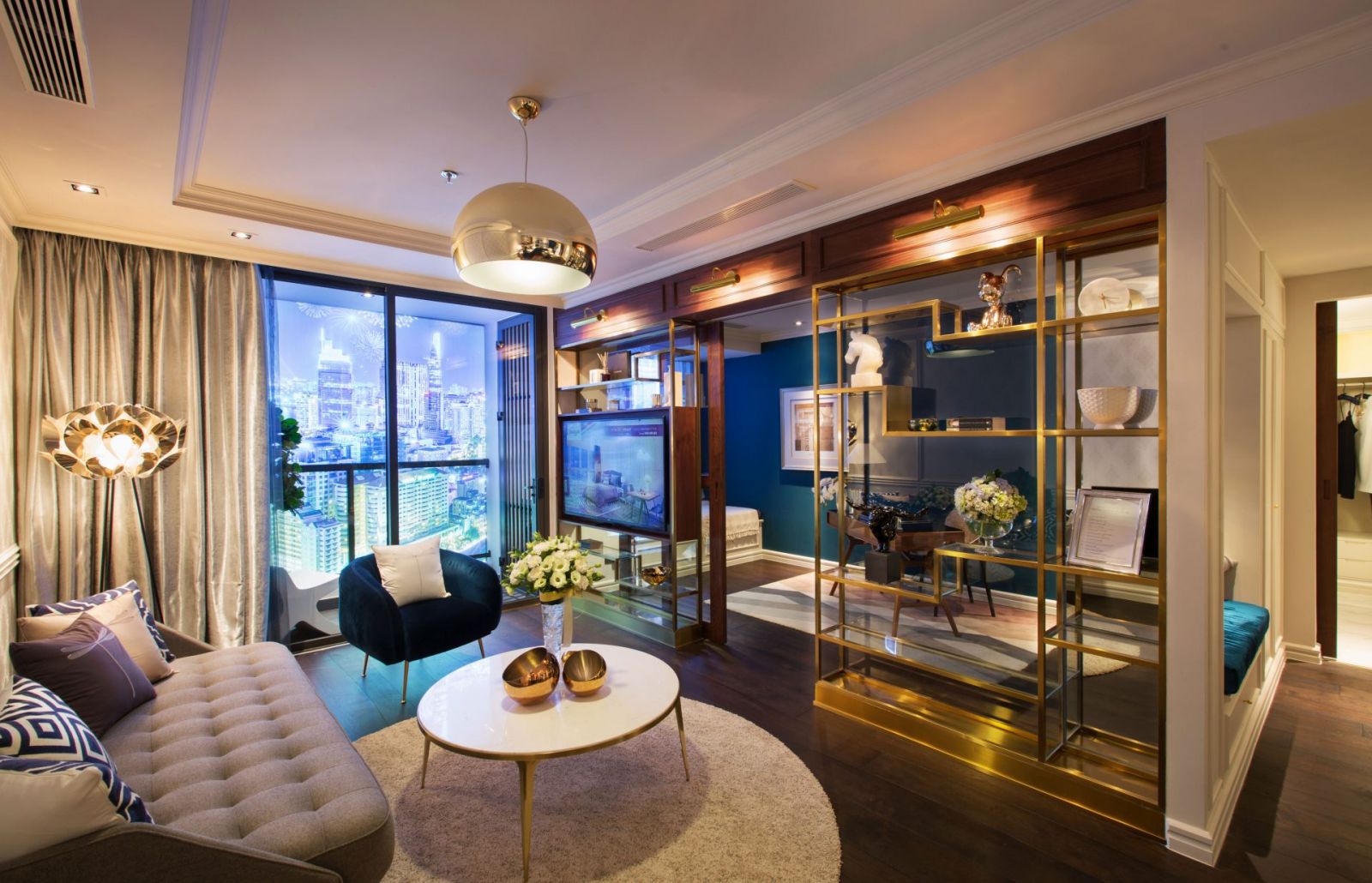
The interior of a high-end apartment. (Photo: Savills)
In addition, HCMC and Hanoi are seeing significant development and can be considered on par with other cities in the region.
The abundant capital resources, the increasing number of foreign investors and appropriate policies from the Government will also encourage the development of the domestic real estate market, MacGregor noted.
MacGregor stated that the prices of apartments in HCMC and Hanoi remain lower than those in Kuala Lumpur and Bangkok despite HCMC’s higher growth rate. The average apartment price is forecast to increase in the coming period but at a slow rate.
At present, high-end apartments in downtown HCMC are sold at US$5,500-US$6,500 per square meter on average, much cheaper than in major regional cities. Further, demand among foreigners for apartments in Vietnam has risen sharply since restrictions were lifted in 2015 to allow them to own houses in the country.
According to property service provider CB Richard Ellis (CBRE) Vietnam, high-end apartments accounted for the largest proportion of the total number of apartments put up for sale over the last three years. These apartments were mainly sold to foreigners, particularly Chinese investors.
In the January-September period last year, foreigners buying apartments in HCMC through CBRE Vietnam made up 76% of the total, where 31% were Chinese.
The rate was only 2% in 2016 and 4% in 2017, which proves that the Chinese are showing increasing interest in the high-end property segment in HCMC.
Although Vietnam has achieved positive results in improving its investment environment, many regulations and procedures continue to be barriers to investment from foreigners in the local property market, according to a report by the Investment and Trade Working Group at the Vietnam Business Forum 2018.
Guidance on the application of regulations on the sale of apartments and villas to foreigners has yet to be released.
In addition, the municipal and provincial Departments of Construction have failed to fulfill their task to publicize the list of commercial housing projects that are not allowed to be sold to foreign individuals and organizations, according to the working group.
Therefore, the working group proposed the Departments of Construction coordinate with the People’s Committees to quickly complete the job to ensure the transparency of the local housing market.
Moreover, foreigners are permitted to own a maximum of 30% of an apartment building. However, the Ministry of Construction and the Departments of Construction have yet to reach a solution for recording the total number of apartments owned by foreigners.


















